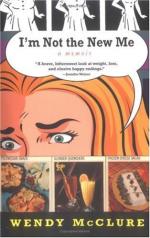It seems that among the offices to be filled at the August election of 1837 was that of probate justice of the peace. One of the candidates was General James Adams, a man who had come on from the East in the early twenties, and who had at first claimed to be a lawyer. He had been an aspirant for various offices, among them that of governor of the State, but with little success. A few days before the August election of 1837 an anonymous hand-bill was scattered about the streets. It was an attack on General Adams, charging him with having acquired the title to a ten-acre lot of ground near the town by the deliberate forgery of the name of Joseph Anderson, of Fulton County, Illinois, to an assignment of a judgment. Anderson had died, and the widow, upon going to Springfield to dispose of the land, was surprised to find that it was claimed by General Adams, and she employed Stuart and Lincoln to look into the matter. The hand-bill, which went into all of the details at great length, concluded as follows: “I have only made these statements because I am known by many to be one of the individuals against whom the charge of forging the assignment and slipping it into the general’s papers has been made; and because our silence might be construed into a confession of the truth. I shall not subscribe my name; but hereby authorize the editor of the ‘Journal’ to give it up to any one who may call for it.”.
After the election, at which General Adams had been elected, the hand-bill was reproduced in the “Sangamo Journal,” with a card signed by the editor, in which he said: “To save any further remarks on this subject, I now state that A. Lincoln, Esq., is the author of the hand-bill in question.” The same issue of the paper contained a lengthy communication from General Adams, denying the charge of fraud.
The controversy was continued for several weeks. General Adams used, mostly, the columns of the “Springfield Republican,” filling six columns of a single issue. He charged that the assault upon him was the result of a conspiracy between “a knot of lawyers, doctors, and others,” who wished to ruin his reputation. Lincoln’s answers to Adams are most emphatic. In one case, quoting several of his assertions, he pronounced them “all as false as hell, as all this community must know.” Adams’s replies were always voluminous. “Such is the turn which things have lately taken,” wrote Lincoln, “that when General Adams writes a book I am expected to write a commentary on it.” Replying to Adams’s denunciation of the lawyers, he said: “He attempted to impose himself upon the community as a lawyer, and he actually carried the attempt so far as to induce a man who was under the charge of murder to entrust the defence of his life to his hands, and finally took his money and got him hanged. Is this the man that is to raise a breeze in his favor by abusing lawyers? ... If he is not a lawyer, he is a liar; for he proclaimed himself a lawyer, and got a man hanged by




